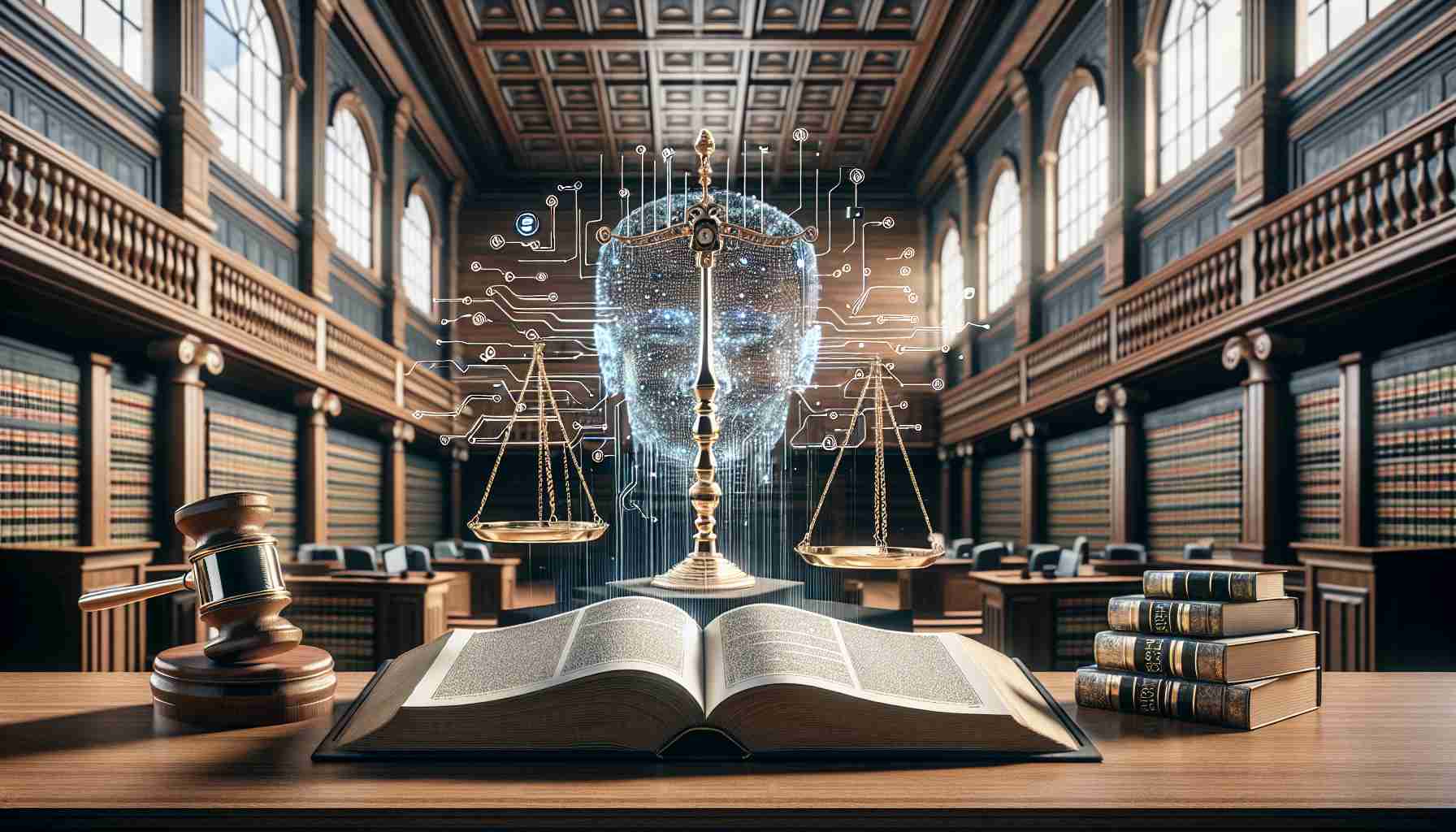In a groundbreaking advancement for Brazil’s legal system, the Tocantins Court of Justice (TJTO), in collaboration with the Higher School of Magistracy of Tocantins (ESMAT) and the University of São Paulo (USP), has unveiled an innovative artificial intelligence (AI) platform. This AI tool, making its debut on April 15, 2024, is designed to revolutionize how constitutional, special, and extraordinary appeals are reviewed for admissibility.
The project, supported by cutting-edge research from the SmartCitiesBR group at USP and the startup Taqui, features generative AI technology. The development of this AI began in 2023 under the guidance of USP professors Ana Carla Bliacheriene and Luciano Vieira de Araújo. It promises to set new benchmarks in judicial efficiency, transparency, and ethical AI utilization.
Unlike conventional AI tools which process documents in a query-based chat format, this pioneering technology takes a holistic approach to legal document review. It can handle an immense volume of diverse judicial documents at once, digesting everything from petitions to court rulings. The AI swiftly creates summaries, reports, and draft decisions that encompass critical facts and legal arguments.
For the Tocantins judiciary, this isn’t merely an adoption of high-tech tools but a reflection of its commitment to ethical applications of AI. As the legal sphere grapples with an ever-increasing caseload, the AI platform offers a solution that adheres strictly to legal standards and supports judicial decision-making at a pace and precision previously unattainable.
Current Market Trends
The Brazilian Judiciary’s AI initiative mirrors a growing international trend where judicial systems are increasingly integrating AI technology to cope with heavy caseloads and improve overall efficiency. Globally, law firms and courts are leveraging AI for tasks ranging from legal research to predicting case outcomes. In Brazil, the push towards digitization and technological innovation within the legal system is part of a broader movement in the country to modernize infrastructure and embrace digital solutions.
Enhancing legal analyses with AI tools like the one developed by TJTO, ESMAT, and USP is indicative of an important shift towards more data-driven, objective, and efficient judicial systems. This digital transformation in the legal sector is expected to grow as more advancements are made in AI technology, particularly in natural language processing, which is core to understanding and analyzing legal documents.
Forecasts
The continued implementation of AI within the judicial sector is likely to streamline processes, leading to faster case resolutions and a decrease in the backlog of legal cases. However, the level of AI adoption by the judiciary is contingent upon ongoing innovations in AI, the legal system’s openness to change, and the public’s acceptance of AI-assisted decision-making.
Key Challenges and Controversies
There are several key challenges and controversies to be mindful of:
1. Ethical Considerations: The use of AI in legal contexts raises ethical issues such as bias, transparency, and accountability. Ensuring that AI tools do not perpetuate existing biases or create new ones is crucial.
2. Accuracy and Reliability: The effectiveness of AI in understanding complex legal jargon and context-sensitive information is paramount. Questions about the AI’s ability to appropriately interpret and summarize legal documents remain.
3. Job Displacement: As AI tools become more adept at performing tasks traditionally done by legal professionals, there is a concern about job displacement within the legal sector.
Most Pressing Questions Relevant to the Topic
Some pressing questions include:
1. How will AI impact the workforce within the legal sector?
2. What measures are being put in place to safeguard against AI biases in legal decision-making?
3. Will AI tools be transparent and explainable enough to maintain public trust in the judicial system?
Advantages and Disadvantages
Advantages:
1. Increased Efficiency: AI can significantly reduce the time it takes to review legal documents, leading to faster case resolutions.
2. Consistency: AI tools can provide consistent analyses, minimizing human error or personal biases.
Disadvantages:
1. Over-reliance on AI: There is a risk that judges and lawyers may over-rely on AI-generated analyses without adequate oversight.
2. Lack of Emotional Intelligence: AI lacks the human element, which is sometimes necessary to make complex, empathy-driven legal decisions.
For further information on the Brazilian judicial system and its institutions, you can visit their official websites, like the Superior Court of Justice at STJ, or for a broader perspective on Artificial Intelligence in Brazil, visit the official portal for Brazilian governmental news at Brasil.gov.br. Please ensure you verify URLs as they may have changed since the time of writing this content.

